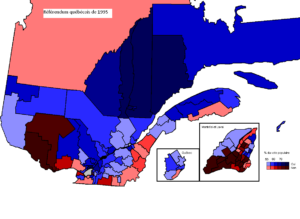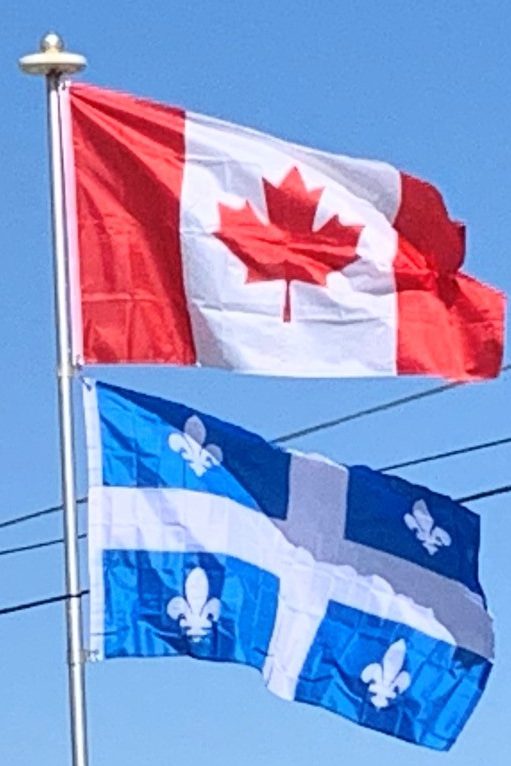Lévesque and his party had run in the 1970 and 1973 Quebec elections under a platform of separating Quebec from the rest of Canada. The party failed to win control of Quebec’s National Assembly both times – though its share of the vote increased from 23 percent to 30 percent – and Lévesque was defeated both times in the riding he contested. In the 1976 election campaign, he softened his message by promising a referendum (plebiscite) on sovereignty-association rather than outright separation, by which Quebec would have independence in most government functions but share some other ones, such as a common currency, with Canada. On November 15, 1976, Lévesque and the Parti Québécois won control of the provincial government for the first time. The question of sovereignty-association was placed before the voters in the 1980 Quebec referendum. During the campaign, Pierre Trudeau promised that a vote for the “no” side was a vote for reforming Canada. Trudeau advocated the patriation of Canada’s Constitution from the United Kingdom. The existing constitutional document, the British North America Act, could only be amended by the United Kingdom Parliament upon a request by the Canadian parliament.
Sixty percent of the Quebec electorate voted against the proposition for sovereignty-association. Polls showed that the overwhelming majority of English and immigrant Quebecers voted against, and that French Quebecers were almost equally divided, with older voters less in favour and younger voters more in favour. After his loss in the referendum, Lévesque went back to Ottawa to start negotiating a new constitution with Trudeau, his minister of Justice Jean Chrétien and the nine other provincial premiers. Lévesque insisted Quebec be able to veto any future constitutional amendments. The negotiations quickly reached a stand-still. Quebec is the only province not to have assented to the patriation of the Canadian constitution in 1982.
In subsequent years, two attempts were made to gain Quebec’s approval of the constitution. The first was the Meech Lake Accord of 1987, which was finally abandoned in 1990 when the province of Manitoba did not pass it within the established deadline. (Newfoundland premier Clyde Wells had expressed his opposition to the accord, but, with the failure in Manitoba, the vote for or against Meech never took place in his province.) This led to the formation of the sovereigntist Bloc Québécois party in Ottawa under the leadership of Lucien Bouchard, who had resigned from the federal cabinet. The second attempt, the Charlottetown Accord of 1992, also failed to gain traction. This result caused a split in the Quebec Liberal Party that led to the formation of the new Action démocratique (Democratic Action) party led by Mario Dumont and Jean Allaire.

On October 30, 1995, with the Parti Québécois back in power since 1994, a second referendum on sovereignty took place. This time, it was rejected by a slim majority (50.6 percent NO to 49.4 percent YES).
Statut Particulier:
Given the province’s heritage and the preponderance of French (unique among the Canadian provinces), there has been debate in Canada regarding the unique status (statut particulier) of Quebec and its people, wholly or partially. Prior attempts to amend the Canadian constitution to acknowledge Quebec as a “distinct society” – referring to the province’s uniqueness within Canada regarding law, language, and culture – have been unsuccessful; however, the federal government under Prime Minister Jean Chrétien would later endorse recognition of Quebec as a distinct society.
